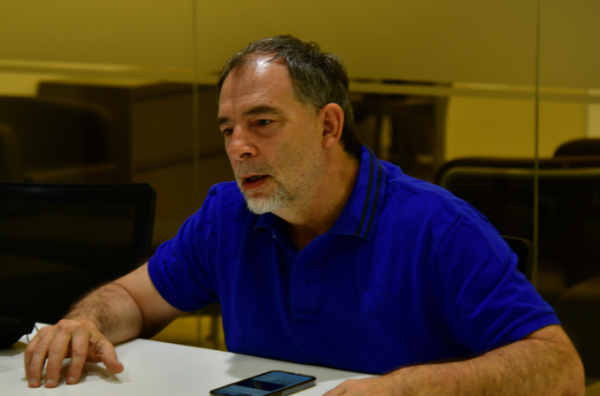
In 2016, Chile implemented a consumer protection law mandating front-of-package warning labels, restricting marketing, and banning school sales for high-calorie, sodium, sugar, or saturated fat products. Now the Chilean senator responsible for the law, physician Guido Girardi is in the Dominican Republic to lobby for the country to also pass a bill similar to the “Law of Nutritional Labeling and its Advertising,” now in effect in Chile. He has the support of the Food and Agriculture Organization of the United Nations (FAO).
“There are many people dying because of obesity itself or the disease triggering other diseases such as cancer, heart attacks, stroke, stroke, among others,” Girardi said in an interview with the Listín Diario.
The legislator recounted how the initial opposition to the project died out in Chile once it was launched and everyone united. He says people in Chile today are satisfied with the results.
The senator mentions the multinationals Coca-Cola and Nestlé as two of those who were reluctant to implement the idea with their products, but after some time they became the greatest allies of the cause. In the Dominican Republic Coca Cola has lobbied successfully against an increase in taxes on soft drinks.
“My country leads the consumption of sugar-free beverages in Latin America, and that is thanks to this regulatory law,” Girardi says proudly.
The legislator was awarded the Jacques Diouf Award by the FAO in 2019 for his initiatives and collaboration with the organization. This distinction is awarded every two years to individuals or institutions that have made a significant contribution to global food security.
The Nutritional Labeling and Advertising Law is based on creating healthier labels to improve eating habits, making companies restructure their formulas and be more truthful in their relations with their consumers. In Chile, 30% of products were reformulated.
Dr. Girardi came to participate in the first “National Forum on Front-of-Food Labeling with Nutritional Warnings in the Dominican Republic” with the participation of sectors linked to food safety and nutrition.
Vice President Raquel Peña attended the forum. She is the head of the Abinader administration health cabinet. Eduardo Estrella, president of the Senate; the Public Health Minister Daniel Rivera and Rodrigo Castañeda, FAO representative in the country also attended.
In Chile, the senator and physician is now working on a compendium of laws to regulate social networks, since he understands that the Internet causes serious impacts on the brain of its users. For this, he has the support of Rafael Yuste, who is part of the “Brain Project”.
“People spend more than six hours a day glued to their cell phones, receiving all kinds of information, in the virtual world a second in the computer era there are millions of processes that can change the world, time is extended and space is eliminated simultaneously,” added Girardi.
He stressed that in the future it will be possible to read the brain and that people’s security must be safeguarded.
“People accept that platforms such as Gmail and others accept to read their messages, filter them and sell their data for advertising and that is not fair for users”, commented the Chilean senator.
He made it clear that the laws of the physical world must reach the virtual world so that no one takes advantage of those who are not 100% proficient in the use of technology.
Read more in Spanish:
Listin Diario
The Lancet
13 December 2021

